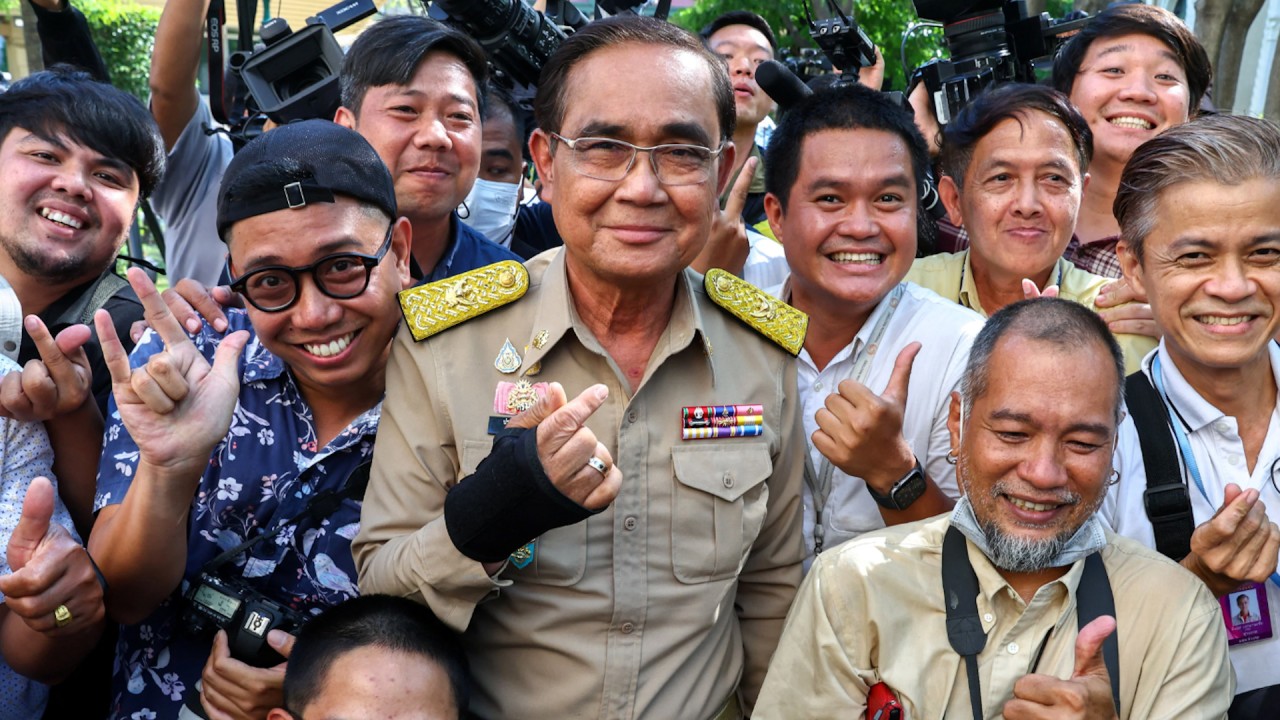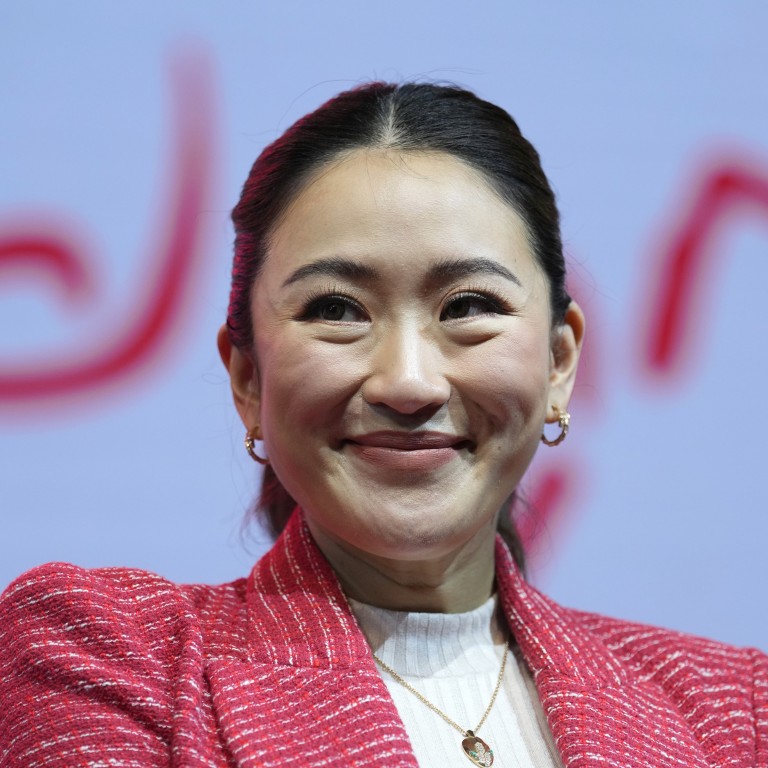
Thai election: as Thaksin’s daughter Paetongtarn readies for May 14 vote, army and youth pose major challenges
- Paetongtarn faces challenges from the pro-military camp backing incumbent PM Prayuth on the right and the youth-centric Move Forward Party on the left
- Pro-democracy parties yearn for a different course from former army chief Prayuth, while the Shinawatra brand name is incendiary to the country’s royalists
Paetongtarn Shinawatra whispered a short prayer at a Bangkok shrine as she headed into eight weeks that will decide whether Thailand’s most successful political dynasty returns to power, after being sidelined by the military for nearly a decade.
The Shinawatra brand is now fronted by Paetongtarn, a 36-year-old better known as “Ung-Ing”, who is pregnant with her second child. The family’s electoral vehicle, Pheu Thai, is likely to win millions of votes, especially from the north and northeast, where loyalty to her father Thaksin runs deep.
But the Shinawatra surname is an incendiary one to many in Thailand’s conservative royalist establishment who accuse Thaksin and his affiliated parties of gobbling up too much power, influence and wealth during their time in charge.
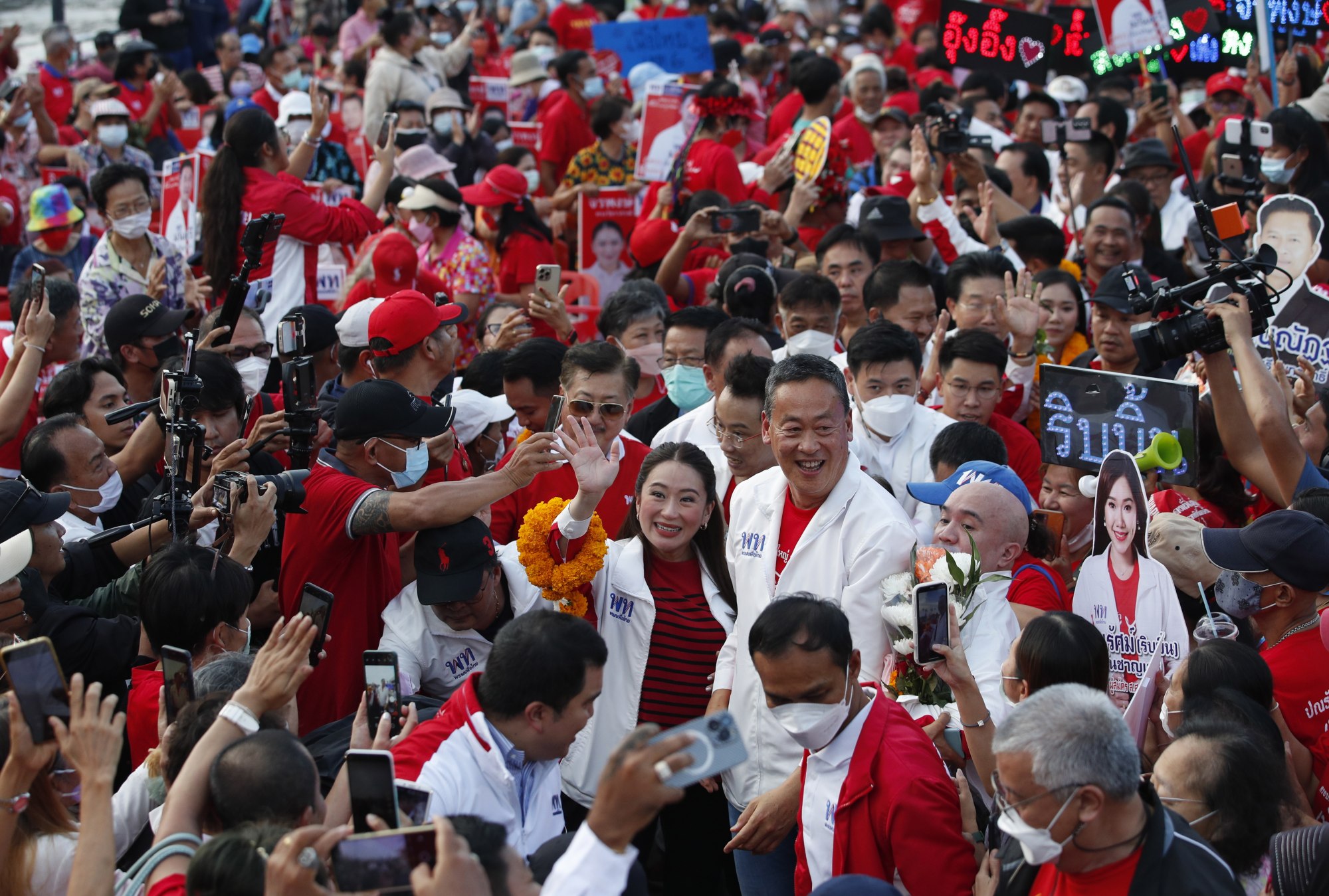
“We are ready to rescue the country,” Paetongtarn told reporters on March 21 outside the City Pillar shrine where Bangkok residents seek blessings.
“We are very ready to go on campaigning and to explain our policies in greater detail, but in the end it’s about the people; whether they choose us or not, the power is in their hands.”
It may well be the last roll of the dice for her family, experts say, after a painful two-decade tussle with the conservative royalist establishment.
“This election could mean the difference between being shut out from power permanently and reclaiming the [Shinawatra] family’s monopoly on Thai democracy against formidable challenges,” said Napon Jatusripitak, a visiting fellow at the ISEAS-Yusof Ishak Institute in Singapore.
Those challenges came from both the incumbent leader’s “pro-Prayuth camp” on the conservative right, he explained, and from the more progressive Move Forward Party on the left that hoped to pull millions of first-time voters to its more radical, reformist banner.
Paetongtarn is eight months pregnant but still campaigning, in part accounting for the uncertainty over whether she will run for prime minister when the candidates are declared in a few weeks.
The other major unknown is whether the military establishment will allow her Pheu Thai party to form a government, experts say, even if they secure a landslide win.
Thailand’s military refuses to leave power to civilian politicians and has carried out 13 coups since the country became a constitutional monarchy in 1932. Two of them have been directed at Shinawatra prime ministers.
Thaksin changed Thailand with a 2001 landslide election win, which recognised the evolving aspirations of the country’s poor by offering them large subsidies, scholarships and universal healthcare, in a country marked by some of the deepest inequality in Asia.
But he was ousted in 2006 by the army after a second polls win pointed to a lasting power shift and he has not set foot in Thailand since 2008, when he was hit with corruption charges that he said were politically motivated.
Why Thai politics remains a rigged system with little chance of reforms
Prayuth digs in
Prayuth, 69, casts himself as the reluctant rescuer of a divided country, seizing power in 2014 as mass anti-Shinawatra protests spun out of control.
He was reappointed prime minister after elections in 2019 in which his party won 20 fewer lower-house seats than Pheu Thai, but dipped into the vote bank of an appointed senate to return him to the premier’s office.
That election was held under a constitution written by the army and its backers, which critics say was designed to disadvantage pro-democracy parties, specifically Pheu Thai.
As Covid-19 surges, Thai PM faces crisis of confidence stoked by Thaksin
The same constitution bars any prime minister from serving more than eight years, in theory leaving Prayuth with just two years after the coming election. Yet he remains the most likely conservative prime ministerial candidate and needs just 25 seats under the banner of his new party – United Thai Nation – to be nominated.
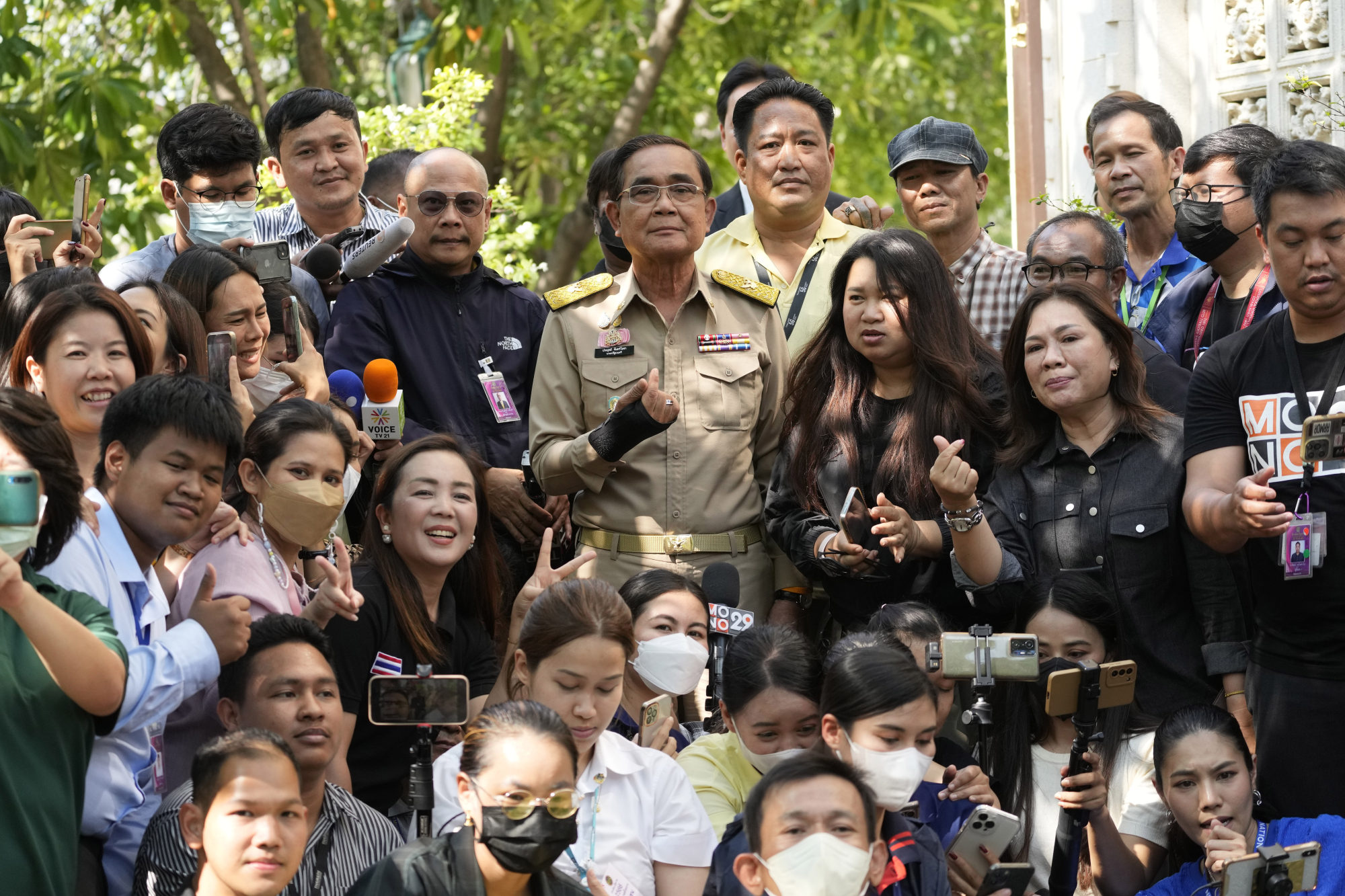
The post-election shake-up may well see Prayuth again patch together a majority from the 750 votes from the lower and upper houses to return to office.
But his opponents are aghast at the possibility of a return of the retired general.
They say his years at the top have resulted in a deepening of inequality and a reversal of rights, and have embedded the army in politics and guided the economy further into the hands of monopolies.
Meanwhile, household debt has increased throughout the pandemic and global inflation crisis, and young pro-democracy activists, who led mass protests in 2020 against Prayuth, have been hit by rubber bullets on the streets – and jail sentences in the courts.
We don’t want this election to be a path for the same political parties to exploit just to go back to power
“We don’t want this election to be a path for the same political parties to exploit just to go back to power,” said prominent protest leader Patsaravalee Tanakitvibulpon.
“To free our country from the same loop, we need real structural change led by new faces in Thailand’s parliament.”
Patronage pays
A “super-landslide” win for the Pheu Thai party could start emerging at around 310 seats, potentially large enough to forge a coalition in the 500-member lower house and outweigh the leanings of the 250-strong unelected senate, mostly hand-picked by Prayuth.
Pheu Thai has already reeled in some of the country’s political fiefs who switch allegiances at election time, depending on what the winner can offer them.
Those include the Khunpluems, who dominate Thailand’s eastern seaboard.
They supported Prayuth as he reordered politics around the royalist establishment. But when Thailand goes to the polls in May, the family will once more line up behind the Shinawatra banner.
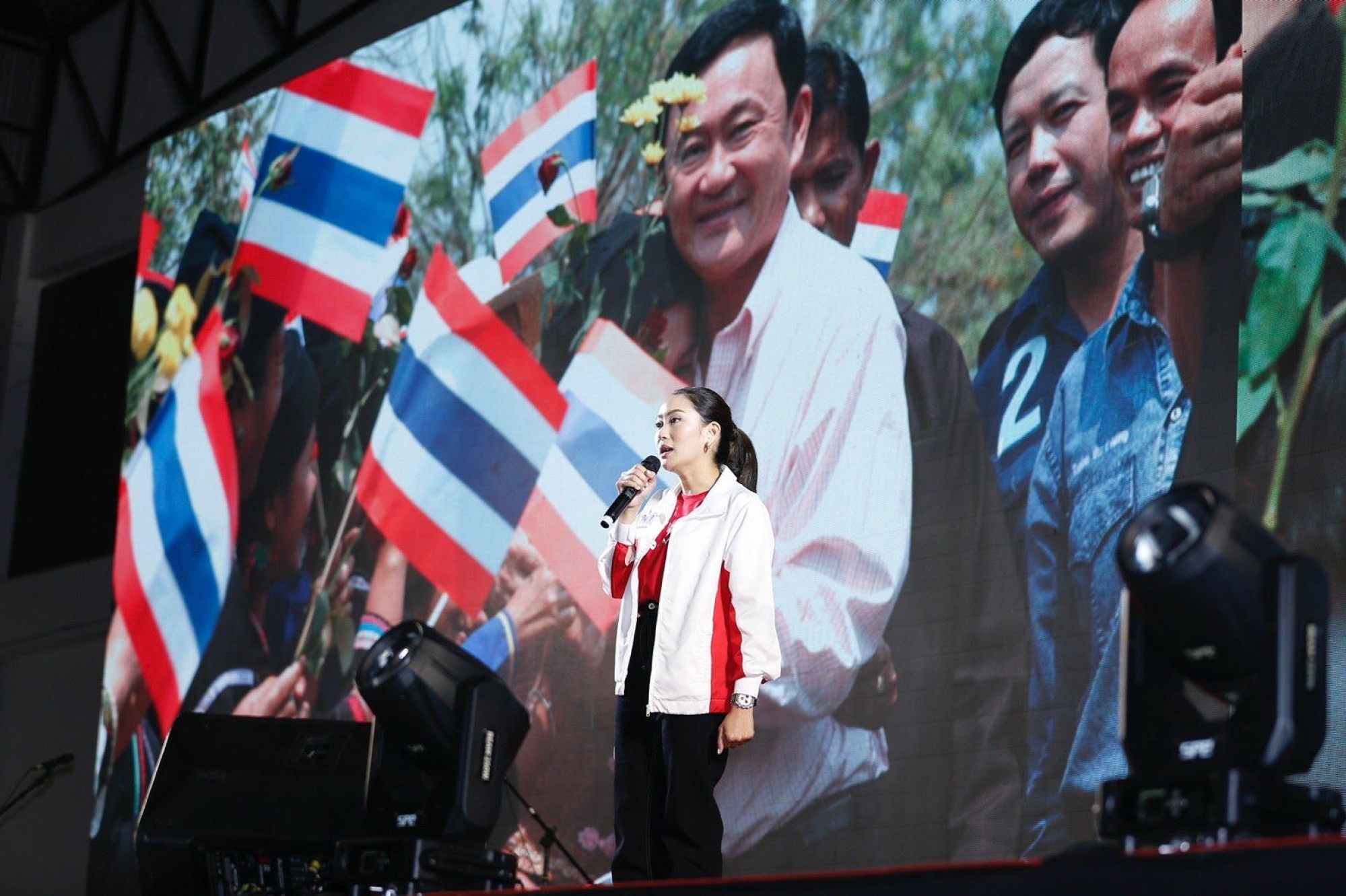
“To really get the work done for the people, I think it’s best to work with a bigger party,” Sonthaya Khunpluem told This Week in Asia. “So I’m going back to work with Pheu Thai.”
Although in self-exile in Dubai, Thaksin still looms large over Thailand’s political stage.
A former policeman turned billionaire businessman, he leveraged public support into a new political settlement, with his family and party at the fulcrum but drawing in key local politicos.
“Upcountry patronage networks still mattered, but Thaksin was able to set up a system that subsumed it,” said Thitinan Pongsudhirak, a political scientist at Thailand’s Chulalongkorn University.
“The patronage was driven to a national scale,” he explained, buttressed by policies which reinflated Thailand’s sagging post-1997 Asian financial crisis economy with “income redistribution, development in the auto, tourism and healthcare sectors”.
As young Thais look to the future, does Thaksin still matter?
But victory will not come from the shifting loyalties of political networks alone.
“Pheu Thai is on course to win, the big question is the margin … Last time [it] was small enough to be manipulated, this time [it] may be too large to distort,” he added.
Parties for the people
Other major parties contesting the election include Bhumjaithai, which sponsored the recent decriminalisation of cannabis in Thailand and could be cast into the role of political kingmaker.
The youth-facing Move Forward may also be a key player post-election, experts speculate, with many of the four million first-time voters likely to endorse the party.
Its previous incarnation – Future Forward – emerged from nowhere in 2019 to scoop up around six million votes, rattling established parties by coming in third with unvarnished calls to break the old political mould, expunge the army from politics, tackle monopolies and rigorously defend free expression and rights.
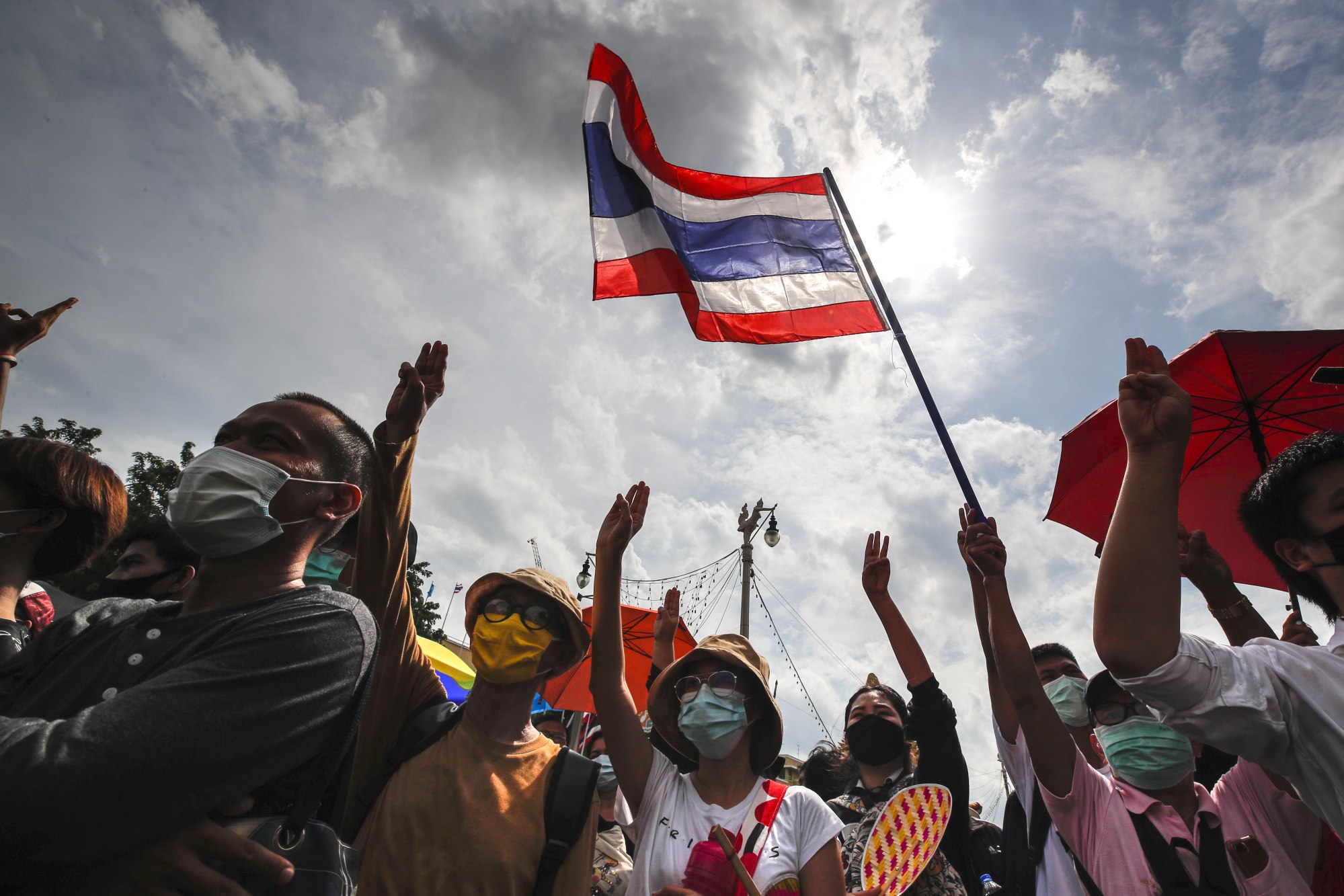
Analyst Napon said the broad reform agenda of Thailand’s youth was not served by the interests that dominated politics.
“Democratic politics in Thailand can be quite exclusive to political dynasties and factions,” he said. “I do not think that the current political system adequately accommodates some of the grievances and demands made by the younger generation.”
For young activists, a shuffling of the old pack of cards is not enough to bring the real democratic change they crave.
“Political parties should be representatives of the people, not of individuals,” said Patsaravalee.


